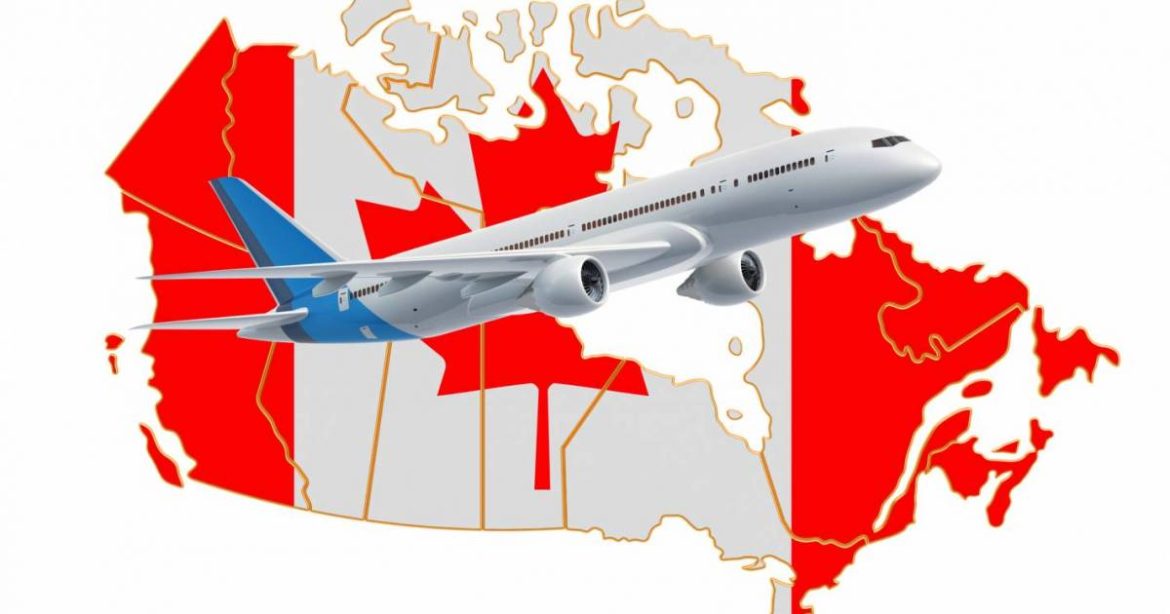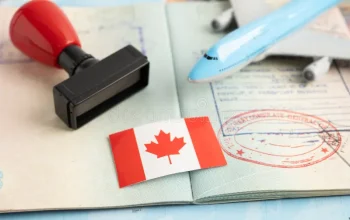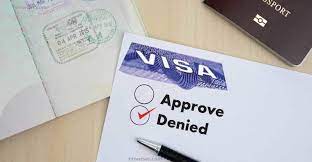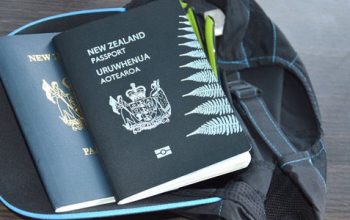Planning to visit Canada from South Korea? Exciting times await! Whether you’re dreaming of exploring the breathtaking landscapes, immersing yourself in diverse cultures, or expanding your horizons through world-class education and job opportunities – it all begins with a successful visa application. But fear not! We’ve got you covered. In this blog post, we’ve compiled the ultimate guide packed with top tips and tricks to help make your journey towards obtaining a Canada visa from South Korea as smooth as maple syrup on pancakes! So buckle up and get ready for an adventure-filled read that will unlock the doors to your Canadian dreams. CANADA VISA FOR SOUTH KOREAN CITIZENS
Introduction to the Canada Visa Application Process for South Korean Citizens
Are you a South Korean citizen planning to visit Canada? Congratulations, you are about to embark on an exciting journey! However, before you can pack your bags and head off to this beautiful country, you will need to go through the process of obtaining a Canadian visa
The Canadian visa application process may seem daunting at first, but with the right information and guidance, it can be a smooth and successful experience. In this section, we will provide an overview of the Canada visa application process for South Korean citizens.
1. Determine the type of visa you need
The first step in the Canada visa application process is determining which type of visa is suitable for your purpose of travel. There are various types of visas available such as tourist visas, student visas, work visas, and business visas. Each type has its own set of requirements and eligibility criteria.
2. Check your eligibility
Before starting your application, it is essential to check if you meet the eligibility criteria for the chosen type of visa. For example, if you are applying for a tourist visa, you must demonstrate that you have sufficient funds to cover your expenses during your stay in Canada and that you have ties in South Korea that will compel you to return after your trip. CANADA VISA FOR SPANISH CITIZENS
3. Gather required documents
Once you have determined your eligibility and selected the appropriate type of visa, it’s time to gather all necessary documents for your application.
Understanding the different types of Canadian visas available for South Koreans
Understanding the different types of Canadian visas available for South Koreans is an essential step in preparing for a successful Canada visa application. As a South Korean citizen, there are various options available to you depending on the purpose of your visit and your intended length of stay in Canada.
1. Temporary Resident Visa (TRV)
The most common type of visa issued by the Canadian government is the Temporary Resident Visa (TRV). This visa allows South Koreans to enter Canada for temporary purposes such as tourism, business, or visiting family and friends. TRVs are typically valid for up to six months but can be extended if necessary.
2. Study Permit
South Korean students who wish to pursue their education in Canada will need to obtain a study permit. This permit allows students to attend designated learning institutions in Canada and can also allow them to work part-time while studying. To apply for a study permit, you will need an acceptance letter from a Canadian educational institution and proof of financial support.
3. Work Permit
South Koreans who have been offered employment opportunities in Canada may be eligible for a work permit. This permit allows individuals to work temporarily in Canada and is usually tied to a specific job offer from a Canadian employer. The duration of the work permit will depend on the length of the job contract.
4. Working Holiday Visa
Canada has working holiday agreements with several countries, including South Korea, allowing young adults between 18-35 years old to live and work in Canada for up to two years.
Eligibility requirements for a Canadian visa
The eligibility requirements for a Canadian visa can be complex and vary depending on the type of visa you are applying for. It’s important to carefully review all the requirements before starting your application process to ensure that you meet all the necessary criteria.
1. Valid Passport:
The first and most basic requirement for a Canadian visa is a valid passport. Your passport must have at least six months validity remaining beyond your planned departure date from Canada.
2. Filled out Application Form:
Before you can apply for a Canadian visa, you must fill out an application form. The type of form needed will depend on the type of visa you are applying for. Make sure to complete the form accurately and provide all required information.
3. Proof of Financial Support:
You must prove that you have enough funds to support yourself during your stay in Canada, as well as return transportation costs and any other expenses related to your trip. This could include bank statements, pay stubs, or proof of employment.
4. Travel History:
It is important that you have a history of international travel when applying for a Canadian visa. This shows that you are able to adhere to immigration rules and regulations and are more likely to comply with the terms of your visit.
5. Letter of Invitation or Accommodation Details:
If someone is inviting you to Canada, they must provide an invitation letter stating their relationship with you, purpose of visit, duration of stay, details about accommodation arrangements, and financial responsibility during your stay in Canada.
Tips and tricks for a successful visa application, including:
1. Gather all necessary documents: The first step to a successful visa application is to gather all the necessary documents. This includes your passport, proof of financial stability, travel itinerary, proof of ties to your home country, and any other supporting documents required by the Canadian embassy in South Korea.
2. Be honest and provide accurate information: It is important to be truthful and provide accurate information in your visa application. Any false or misleading information can lead to rejection or even a ban from applying for a Canadian visa in the future.
3. Apply early: It is advisable to start the visa application process as soon as possible. This will give you enough time to gather all the required documents and make any necessary arrangements for your trip if your visa is approved.
4. Understand the different types of visas available: Canada offers various types of visas such as tourist visas, student visas, work permits, etc. It is essential to understand which type of visa you need for your specific purpose of travel and apply accordingly.
5. Check eligibility requirements: Before starting your application, make sure you meet all the eligibility requirements set by Immigration, Refugees and Citizenship Canada (IRCC). These may include having a valid passport with at least six months validity remaining, sufficient funds for your stay in Canada, good health condition, etc.
6. Fill out the forms carefully: The application forms can be lengthy and complex; therefore it is crucial to fill them out accurately and completely. Double-check all information before submitting them.
Gathering necessary documents and information
When applying for a Canada visa from South Korea, one of the most crucial steps is gathering all the necessary documents and information. This process can seem overwhelming, especially for first-time applicants. However, with proper planning and organization, it can be a smooth and stress-free experience.
Here are some top tips and tricks to help you gather all the necessary documents and information for your Canada visa application:
1. Understand the requirements: Before starting your document collection process, it is essential to understand the specific requirements for your visa category. Different types of visas may have different document requirements, so make sure you are familiar with them before you begin.
2. Start early: Gathering all the required documents can take time, so it is crucial to start early in order to avoid any last-minute rush or delays in your application process. Give yourself enough time to collect everything you need without feeling rushed or stressed.
3. Create a checklist: Making a checklist of all the required documents can be extremely helpful in keeping track of what you have and what you still need to gather. It will also ensure that no important document gets left behind.
4. Have valid travel documents: One of the essential things needed for a Canada visa application is a valid passport that should be valid for at least six months beyond your intended stay in Canada. Make sure that your passport has sufficient blank pages for visa stamps as well.
Completing the application accurately and thoroughly
Completing the application for a Canada visa accurately and thoroughly is crucial in ensuring a successful outcome. Any mistakes or missing information can lead to delays or even rejection of your application. To avoid these issues, it is important to pay attention to detail and follow the instructions carefully. Here are some tips to help you complete your Canada visa application accurately and thoroughly.
1. Understand the requirements: Before starting your visa application, make sure you understand the specific requirements for the type of visa you are applying for. Each category has its own set of documents and eligibility criteria that must be met. Take the time to read through all the guidelines provided by Immigration, Refugees and Citizenship Canada (IRCC) to ensure you have all the necessary documents and information ready.
2. Double-check all personal details: It may seem like a small detail, but any errors in your personal information can cause problems with your application. Make sure all names, dates of birth, passport numbers, etc., are entered correctly and match the information on your supporting documents.
3. Provide accurate employment history: Your employment history is an important factor in determining your eligibility for a Canada visa. Make sure you provide accurate information about your current and past employment, including job titles, dates of employment, salary details, and contact information for your employers.



